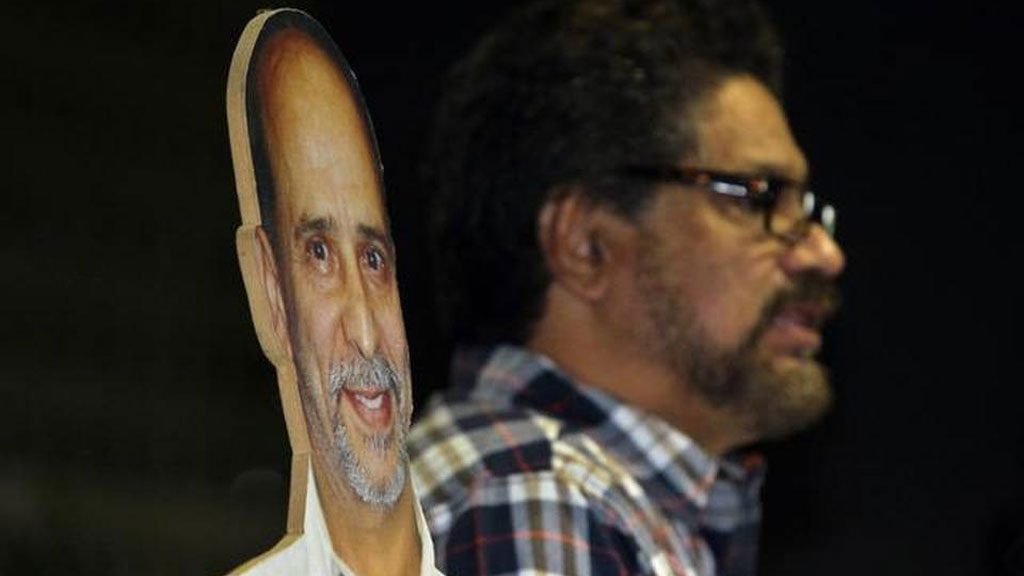Colombian President Juan Manuel Santos has asked the United States to repatriate “Simon Trinidad,” a FARC leader who is serving 60 years in a US prison, an adviser to ongoing peace talks with the guerrilla group said Monday.
According to former Israeli Foreign Minister Shlomo Ben-Ami, the Santos administration asked US Vice-President Joe Biden to see what possibilities exist to repatriate the rebel leader.
Trinidad was convicted in 2007 of conspiring to kidnap three US military contractors, who were held by the FARC between 2003 and 2008.
The FARC has asked for their fellow-rebel’s release since before the peace talks began in November 2012, claiming Trinidad’s release would be an “immense contribution to peace in Colombia.”
ProfilesFARCSimon TrinidadFact sheetPeace talks |
The United States at the time turned down the rebel request, saying that “Trinidad committed crimes and will continue to serve his time in jail.”
Since then, rebel spokespersons are frequently flanked by a life-size cardboard cutout photo of Trinidad.
Santos’ alleged request to repatriate of the FARC leader appears to be part of a larger effort that also seeks the removal of FARC guerrillas from the United States’ list of extradition requests.
Santos told Spanish newspaper El Pais he would ask Washington to remove FARC members from the extradition list, claiming that “nobody is going to surrender their weapons to go and die in an American prison.”
The Colombian president discussed the ongoing peace talks over the weekend with Bernard Aronson.
The senior US diplomat was appointed Special Envoy for the Colombian Peace Process by US Secretary of State John Kerry less than two weeks ago and has already met with the government and rebel delegations.
US envoy meets FARC peace talks delegates behind closed doors
The leaked secret meetings have not been confirmed or denied by either the US government or the FARC, deemed a terrorist organization by the US and the European Union.
The FARC have been fighting the Colombian state since 1964.
The United States has long played an active part in the conflict and spent billions of dollars in the first decade of this century to support the Colombian state’s military offensive that pushed the rebels to the periphery of the country.
Since the peace talks began, the warring parties have agreed to a rural reform, political participation for the rebels, and the FARC’s abandoning of drug trafficking.
If the negotiators can come to consensus on transitional justice, victim reparation and a truce, the 50-year-old conflict will come to a formal end.


